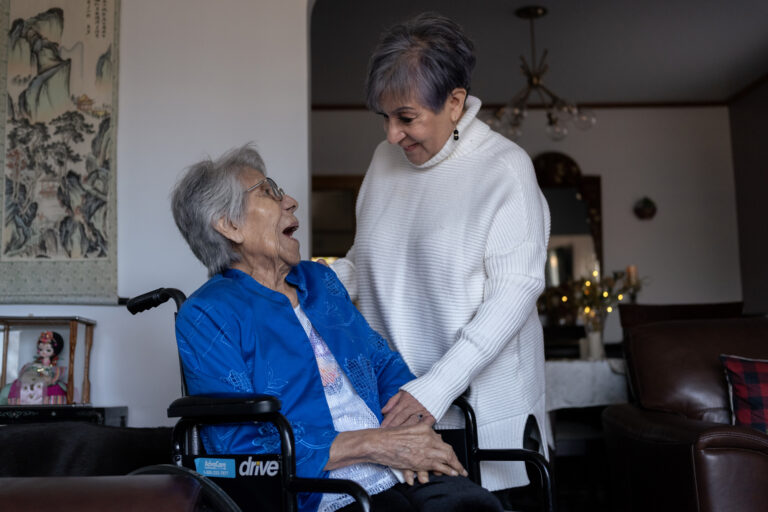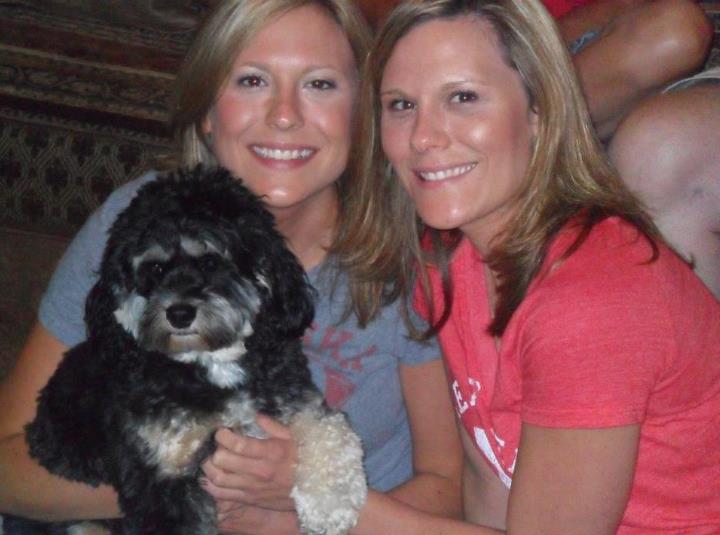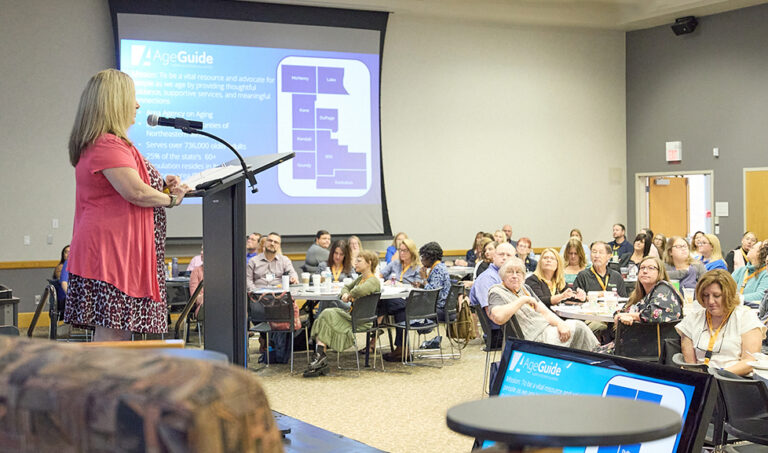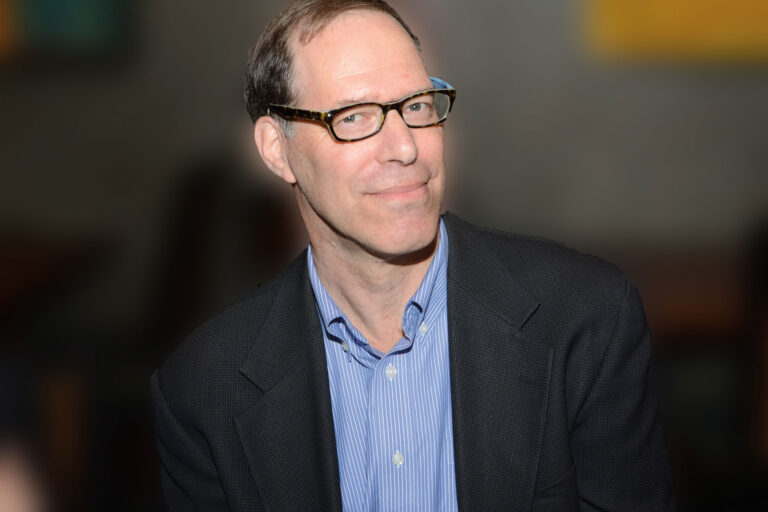Mona’s mom, 97, has Alzheimer’s disease and has lived with Mona for the past 11 years. When Mona retired about 12 years ago, she noticed that her mother, who had always been very active socially and politically, was getting forgetful. Her mother lived in an apartment across the alley from her, and the family would take her to the senior center and keep an eye on her, but over time, Mona noticed that something wasn’t right. Her mother had become somewhat combative, sometimes causing issues with others at the senior center. After her mother accidentally started a fire in her apartment, Mona moved her into her own family’s home.
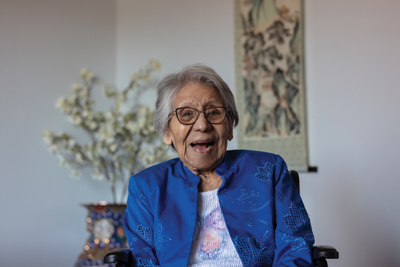 Mona describes herself as “always on the go, always doing something” but she says that caring for her mother tied her down. As her mother was able to do less and less, Mona became the primary person caring for her. She had a hard time adjusting to the role. “I became very angry and impatient, and I think I was depressed. I had gained a lot of weight. I was just feeling sorry for myself all the time. I was very combative and always blaming my family for not helping,”
Mona describes herself as “always on the go, always doing something” but she says that caring for her mother tied her down. As her mother was able to do less and less, Mona became the primary person caring for her. She had a hard time adjusting to the role. “I became very angry and impatient, and I think I was depressed. I had gained a lot of weight. I was just feeling sorry for myself all the time. I was very combative and always blaming my family for not helping,”
she says.
Mona’s schedule reflected her increased demands. She had planned to travel with her husband after retirement, for example, but hasn’t had a real vacation in 10 years other than a few long weekends.
Utilizing Resources
Mona says she had connected with the Department on Aging in the past, after an incident with her father-in-law. She called again about her mother. Someone came to evaluate her mother to see if she qualified for assistance. This was shortly after Mona fell and broke her wrist; she was unable to care for her mother for about a month. Her sister, who also had health problems, took her mother in until Mona recovered.
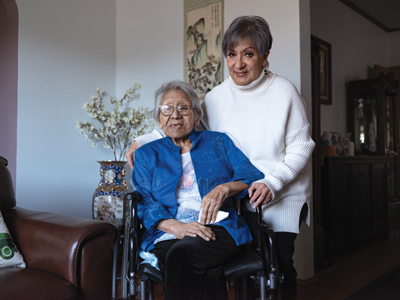 Mona eventually connected with the social services agency Solutions for Care, a support group, and a class on faithful caregiving. “Within the first 15 minutes
Mona eventually connected with the social services agency Solutions for Care, a support group, and a class on faithful caregiving. “Within the first 15 minutes
I started talking, and I cried and I cried.
I was able to get so much out,” she says. Mona adds that it took a while, but she got to the point of accepting that she didn’t have to be her mom’s sole caregiver — she was choosing to be. “I could put her in a nursing home,” Mona says. She also had to come to terms with many other factors: that she wasn’t going to get help from family, that her mom has Alzheimer’s, and that Mona had chosen to be her advocate.
“Education about caring for someone with dementia needs to be easily accessible to everyone — family and paid caregivers alike.”
She also learned about the importance of self-care. Mona has started taking time for doing yoga and aerobics, going for walks, and getting her lashes done. “You think you are the only one, and you are not,” Mona says. By listening to other caregivers’ stories, she says she realized that her experience may be easier than what others are going through.
Mona is paid to be her mother’s caregiver but says Solutions for Care, working with her mom’s insurance, recently helped her figure out how to get an in-home caregiver to relieve her. Solutions for Care also helped determine that Mona’s mom is eligible for respite care in a nursing home, which Mona will need in order to attend her granddaughter’s university graduation out of state.
What Policymakers and Society Need to Know
Politicians need to pay attention to older adults, Mona says. Care workers’ pay is an issue too. If it were increased and they were provided proper training and certification on how to handle people with dementia, there would be more higher-quality care workers.
And people need access to information. Most family caregivers end up sharing information with each other, Mona says. Education about caring for someone with dementia needs to be easily accessible to everyone — family and paid caregivers alike. Mona also says researchers need to look at how society can do a better job of getting information out to the public.
Mona has spoken to her chaplain about how some people are able to be caregivers and others are not. She says she’d like society to better understand what she has come to realize: that not everyone can be a full-time caregiver, which impacts the whole family. She says caregivers should be honest with themselves about their ability to take on this role and that “they take the initiative to join support groups, to learn as much about [their person’s] disease as possible, and to learn as much as they can about self-care.” Mona advises caregivers to “stay healthy mentally, physically, and emotionally so you can provide the best care you can to your loved one” in your chosen role.

